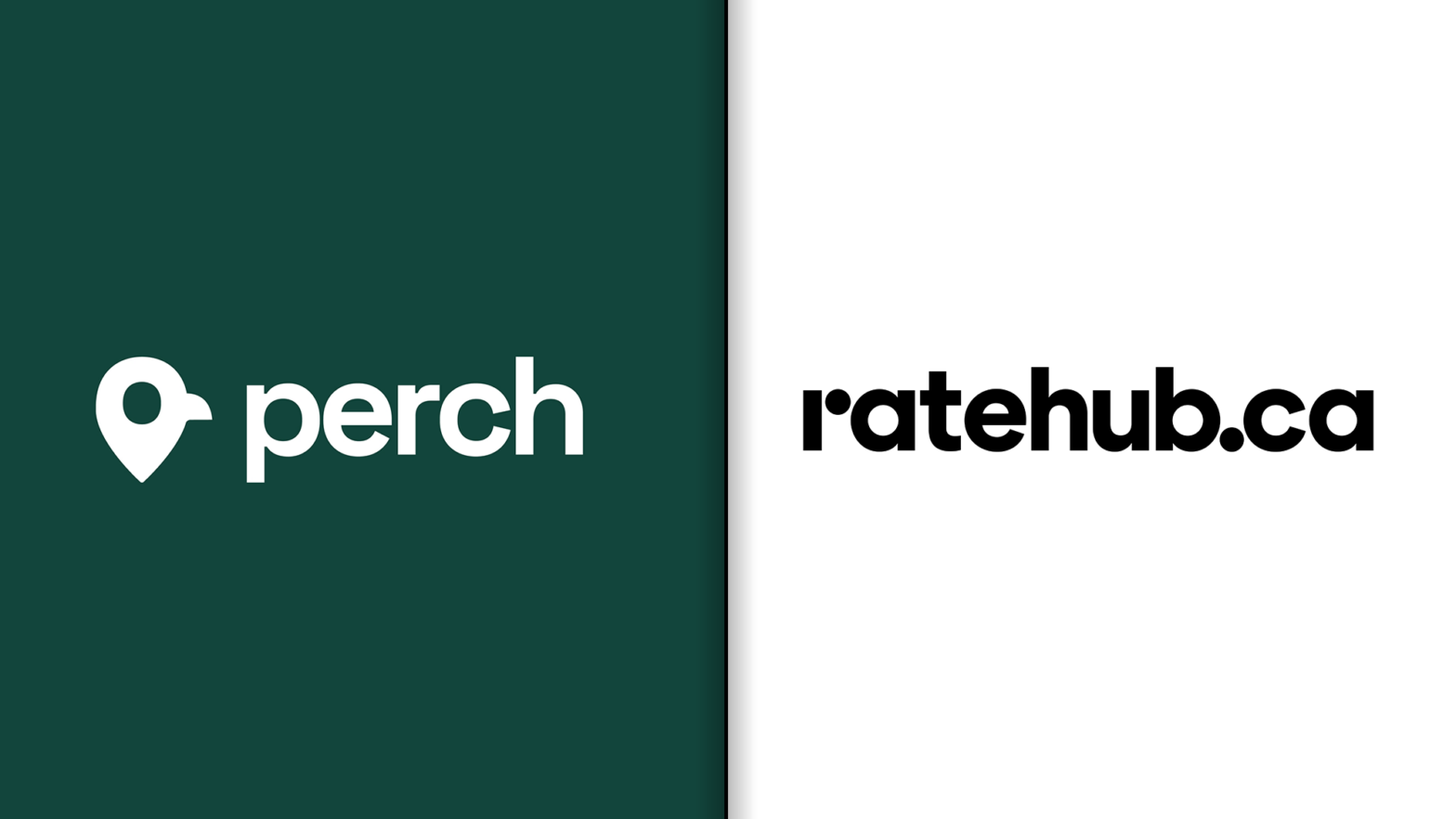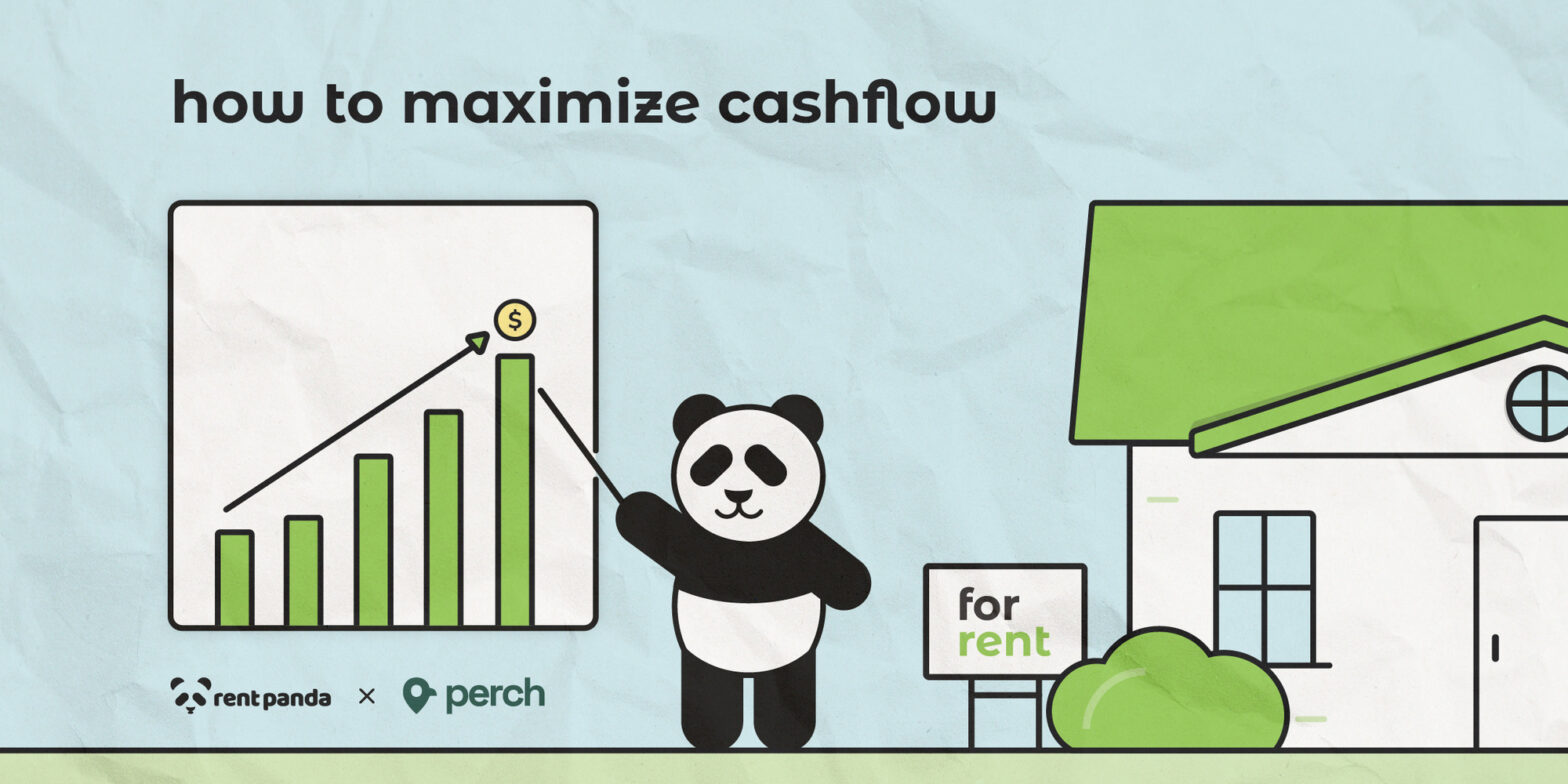Alex Leduc, CEO of Perch, recently sat down with Hunter Young from The Financial Experience Podcast to talk about housing affordability, building wealth through homeownership and the importance of the human element in real estate. You can listen to the full episode here or read the transcript below.
Hunter Young: Hello and welcome to The Financial Experience Podcast. Thank you for joining the podcast, completely devoted to the FinTech and financial services sector, telling the stories of the people and the companies who are changing the financial world.
Hunter Young: I’m here with Alex Leduc, founder and CEO of Perch, based out of the lovely city of Toronto, Canada. Alex, it is great to have you on The Financial Experience Podcast.
Alex Leduc: Well, thanks for having me, Hunter.
Hunter Young: Let’s get into a little bit of the background on Perch, specifically for anyone who follows the mortgage space. Everybody knows home prices are soaring. They are soaring where you live and they’re soaring across the U.S. in a number of hot markets. There’s a technology boom in this space across all the different facets of end-to-end mortgage, origination, research and real estate. I think it would be helpful to hear where your technology sits, where it fits and why now for Perch.
Alex Leduc: Absolutely. So the first thing I’ll emphasize is that we’re a Canadian tech company. Our platform specifically is for the Canadian homeowner or future homeowner. We do have an eye out for the U.S., so stay tuned, you might be seeing us soon.
Essentially, our primary goal is to solve two problems. The first one is to tackle housing affordability head on. So what that means is helping people get into the home they want sooner by optimizing how quickly they can actually qualify for the home that they want to purchase.
We do that through our platform, where there’s an optimization path where we’re essentially giving you catered recommendations that actually fit your specific situation to give you a plan that you can act on to get there a lot sooner. So rather than wanting to buy now and then being disappointed that it’s going to take a couple of months, it is being a bit more proactive and getting ahead of it, so you know exactly what it takes to get there while educating you and giving you the plan you need in advance so that you’re ready when the time comes.
The second element, which is a bit more underserved is actually building wealth through homeownership. So I think a big thing is that people focus a lot on getting into the housing market and then they really don’t know what to do from there. The reality is that your house can actually become quite a lucrative asset class but there’s also a tremendous amount of things you can do with that home equity. So we help people understand the value of their homes, their mortgage balances, the equity growing and if they should switch mortgages. More importantly, that leads to decisions they can make that enable them to build wealth through homeownership and then compound that wealth over time to get into retirement and not need to lean on things like reverse mortgages, private mortgages, all these other forms of expensive financing that burn through the equity that you worked hard to build over your working career.
Hunter Young: I love that, especially the second one. I agree that there is a major underserved and under-educated group as well, in terms of how to go about that and that’s why we see some of the trends in reverse mortgages and things that are actually hurting, not only present day wealth but even generational wealth opportunities. I think that’s great that you’re focusing on that. For folks that do not understand the mortgage base.
There’s a lot that goes in all the pieces and parts of what you just said. It is not easy to just build that and I’d like to hear from you on just what it’s taken to identify partners, tech integrations, automation and user experience. There are so many pieces that go into this puzzle. It may be an unfair question for you to sum that up, but sum it up.
Alex Leduc: Absolutely. I think the core thing is that we started off by solving just one part of the puzzle and then doing it really well.
So when we actually started three and a half years ago, our platform was purely meant to help people pick the right mortgage. So It’s just a mortgage optimization calculator where we could essentially help somebody compare over a thousand offers from over 25 lenders in under 10 seconds. From that, we then just listen to our users, so it was solving that problem really well. But then to your point, what we discovered from talking to our users is that no one’s really sitting there wondering how I can get a better mortgage and real estate in itself is such a complex and long cycle. What we found is that if we truly want to help people, we need to do more than just one part of it and we evolved our product vertical to be a bit broader so that we can help somebody from the start all the way to the finish to truly add more value. I think one key thing that you did mention was the customer experience and how important that part is, it’s really hard to do that if let’s say you only do lead generation, you essentially have no control over any of the outcomes. You need the broker, you recommend the realtor, you recommend the lawyer, everybody needs to perform, which is really hard to do if you don’t have a lot of assistance because you don’t really know where that lead is if you’re not controlling any of the elements.
So we essentially have a brokerage where we take care of the mortgage side of things and then we focus on finding the right partners that can essentially help us elevate that level of service. By having us be involved in the process with them, it helps us maintain a certain level of insight into how that client is doing so that we can step in when we need to rather than just sending off a lead and hoping things pan out, but we don’t find out until it’s two, three months later where they’ve already gone but we had no idea because we weren’t able to get any feed into where they are.
Hunter Young: That’s a good point and one of the things I’m fascinated by in either earlier stage companies like yours or even the more mature companies in the U.S., there was a pretty significant mistake made by a, I guess you could call them an aggregator, a price tool, a lot of things, Zillow, a name many people are familiar with. They made a pretty huge mistake and kind of overextending their capabilities and buying a bunch of homes and then essentially saying, ‘Oh, we can’t handle this like we thought we could,’ and they essentially had to flip that asset back. By the way, if you’re shopping for homes on the Zillow, there are some really good deals relative to the market right now in America, So keep your eye out, but they overextended themselves because of that desire to serve all the needs of the mortgage customer. So I guess one question for you is how you maintain that focus and product without overextending yourself by being great at some of these things, while giving yourself time to add to that research into the end-to-end style journey that you’re creating too.
Alex Leduc: So I think Zillow, in particular, is an interesting case because not only is it a product extension, it’s a radically different way to actually tackle because it becomes a lot harder to accurately price something. With AVMs and all these tools to estimate the value of real estate, there is always going to be an element of uniqueness to everything and it can be so eccentric that it’s so hard to capture every single variable that will automate it, right?
I think we acknowledge that we don’t have an insane amount of data. So I’m sure Zillow still has a lot more data than we do but we kind of just stick to what we know and then we don’t try to do things that would go so far out beyond where our capability is.
I’ll just use one example. Let’s say valuation, where we’re able to estimate valuations to a fairly good degree of accuracy within a shorter time frame, but like any AVM, the longer your time frame the less accurate it becomes. Over time you’re going to have variances build up, all these things that you might not have accounted for like renovations or development in the area. So what we do on our end is we actually have the realtors. We actually use it as an engagement tool, where the realtors every year, will check in and ask ‘here’s what we think it’s worth. What do you think?’ and the realtor will add their two cents. It’s useful because we get more accurate data on the home but at the same time, the realtor is staying top of mind and engaging with their client on an annual basis. it’s kind of a win-win where you’re able to have data but do it in a way that’s a bit more manual but still benefits everybody. Just to your point, being a smaller startup where we don’t have 500 data scientists on standby or a thousand different data sources piping in. Ultimately just kif being realistic and setting standards of what we can do today and also kind of looking forward to what can be done in five years from now, two years from now, 10 years from now and looking at the road that way.
Hunter Young: Yeah and even having all that data doesn’t prevent mistakes. Sometimes it’s good to be young and new in that way. A couple of things I hear you’ve said in this interview, in particular, is on a lot of people focus. So whether it’s customer feedback or whether it’s getting engaged with the realtors, brokers, whomever those partners are, maybe talk through that process as well. What’s the people’s side of this business? You talk about all the variability and that there has to be a human involved and there are all kinds of debates right now about how much human, how much digital? How do you create that wonderful marriage between the two? Talk about the evolution of that and how much value you put on that part of it too.
Alex Leduc: I 100% agree with you there. It’s funny in a naive world. When I actually started this product, my goal was a fully digital brokerage experience where there was no mortgage advisor. You essentially just used the machine and then what we found is just a massive drop-off. As soon as they hit the pre-approval state, pretty much everybody just left because they did not believe that they could just take that pre-approval letter and it would have any validity.
So, what we really quickly learned is that there has to be a human element and as much as real estate has some elements that can be automated, it is still very much a relationship driven thing. So somebody needs to know that there’s a person that’s looking out for their best interest. This is why on our platform we still have dedicated mortgage advisors for every single client. So there’s somebody they can reach out to. The same thing with a realtor, let’s say if I tried to win over a realtor saying, ‘I have a machine, that’ll process all your deals,’ and they’re like, ‘so there’s no one I can call if I need to reach them?’
‘No, absolutely, you won’t need them,’ but they won’t believe me. You really do need a human element and it’s very important but it kind of gets lost in translation. So if I had to put a percentage on it, I’d say you probably need at least 30 or 40% of your experience to be a human component and the rest can be digital.
I’d really break down real estate into two things. There are qualitative and quantitative elements. I think today, too many people try to do both of those things manually because it makes it seem like I care more but the truth is the customer actually gets worse advice because if you’re trying to just repeat a very manual process to calculate things and give insights, that’s actually much better done by calculator versus the person. If you can automate all those things, if you can digitize form signing, data input, carrying things forward, that’s really kind of where you can add efficiency. So, I honestly look at this very similarly to Robo advisors. So when those first came out, everybody’s like, ‘oh, here’s the end of wealth managers, where everybody’s just gonna get their advice without talking to a wealth advisor,’ but that’s not actually what happened. It just enabled wealth advisors to be able to process more clients with the same amount of time but just with increased efficiencies. So we really look at it the same way. I think the industry is going to be placing a tremendous amount of pressure on spreads, especially in the real estate space.
So It will really come down to efficiency. If you’re able to close twice as many deals with half as much net profit, you actually haven’t really lost economically. So there’s going to be a tremendous amount of pressure in that direction and you’re already seeing it. Real estate commissions are coming down, mortgage commissions are coming down. There is a lot of pressure for people to find efficiency and that’s where the human element can stay but you need the automation to be competitive.
Hunter Young: Yeah and as we shift from this robotic refi machine that has been on here for the last 18 months into more of a purchase and pressured situation, I think you’re dead on that it’s going to need to evolve. The volume will need to go up and I did like what you said about the 60/40 digital to human aspect, which maybe five years ago was flipped. So it has shifted more digitally for the better of the mortgage experience but that 40% is not insignificant, it is a big deal and so I like that you put those percentages on it.
Alex Leduc: We’re working on grinding it down slowly, but we can’t be too ambitious with how quickly you grind it down, I think in an end state over the next five to 10 years, the lowest it could reasonably go would probably be in the 20-25% range but I don’t think it’ll ever actually go lower than that anytime soon.
Hunter Young: I agree. You will at least need a quarter of the process with it, with a person involved in some way, shape, or form.
Another question for you and I’m fascinated by the analytical aspect of mortgage today. Historically for anyone who’s either bought a first home or refinanced their home in the last 20 years, it’s really not a very analytical process. People don’t approach it in that fashion. They don’t use a ton of data points, maybe in the last five years, they’ve looked at a Zillow estimate and said “that is the value of my home and I will get that price,” and then they’ve been sorely disappointed. So beyond that quote analysis, beyond the calculator, buy vs rent calculator on a website, what type of research is really going to set apart the previous generation of mortgage shoppers with the next generation and a lot of what you’re trying to enable.
Alex Leduc: Really good question. This one’s interesting. So I find with mortgages, there’s a much greater degree of certainty that we’re able to actually quantify things than with real estate, let’s say a realtor for example. Unfortunately, when they poll people, 75 to 80%, of people don’t view homes as an investment, they view it as a place to live. So I think when you have such an emotional attachment to an asset, it’s actually that makes it really hard to actually subjectively evaluate something because there is a huge element that is completely out of your control and it’s not even rational so you can’t really model something that’s irrational but when it comes to mortgages, there’s no affinity to certain things like beyond a certain point. So I think it enables us to really kind of have a much more accurate output because a lot of it is just cash flow. So if one has a lower rate versus different terms, if one has different penalties, if one has different fees, all of those things can actually be modeled out with a pretty good degree of certainty.
So when you’re actually comparing which mortgage is better for me, there’s actually a very clear answer most of the time and then when you have a degree of certainty, it helps me essentially advise clients on which ones they should pick. There’s obviously going to be variety and some elements that you can’t control but for the most part, it’s very clear on a general level how to rank and compare options. But when you’re getting into the space of like how much can my home sell for, there are so many things that are out of your control.
I’ll just use my home as an example. When I bought my house, I actually bought it three or four months after covid started. So we bought in May of 2020 and we were bidding against maybe one other person at all times. There weren’t even open houses, no one was interested. We were going under asking and getting people to come back and talk to us. Today, there’s no inventory. There are maybe 15 to 25 bidders but just a completely different environment, right? You have the macroeconomics, you even have the local environment, so how much demand is there for your area? But then it’s also going to be ‘how much does that buyer want the house?’ There’s always that one person that goes in that’s like ‘I’ve got my max price. I’m not going above that,’ and then the other person is typically the one that walks in and is like ‘I love this house, I don’t care what it costs,’ and then there’s natural friction where at some point you just get tired after six, seven, eight houses lost.
You’re just like, ‘all right, throw it out the window, forget the max price theory. I’m just gonna go in and eventually, I’ll get my money’s worth.’ So those elements all play into it and nothing about that is quantitative, it’s purely qualitative. There are just so many more moving parts where it’s hard to justify because if somebody buys a $900,000 house that ends up being worth $880,000 like, are they actually going to be that disappointed? No, they want to live there for five to 10 years. So it’s one of those things you just accept that there’s a degree of variability and sometimes you get lucky.
Hunter Young: Yeah, absolutely right. Without question, there are emotional aspects to home buying that the data will never reveal. My wife was the person who got in and said, ‘we’ll take it’ and I said, hold on. We walked right through the door one chandelier and that was all it took. You’re right, it’s a complex qualitative and maybe quantitative to a certain extent process as well.
One final question as you look out both from your company’s standpoint and just in the industry in general for the next three years or so, what’s getting you the most excited? Where do you feel like the biggest innovations are going to occur and what’s your outlook for the industry as a whole?
Alex Leduc: So I think for candidates particularly and I don’t know, the U.S. is all already way ahead in this direction. We’ve actually just started passing legislation in regards to open banking. So, it’s interesting that in the U.S., there’s already a tremendous amount of competition between banks and where people get mortgages, but Canada’s actually significantly more concentrated when it comes to where people actually get their options.
So I’m really excited by the amount of innovation that could come on the lending side and just the options that people actually have available of where to get their lending in the coming years, just as things open up and there’s more and more competition and innovation. That’s one thing I’m particularly excited about.
I was just at Inman actually in Las Vegas a couple of weeks ago. One thing that seems to be really picking up is the change in the dynamic of the realtor and financing relationship because I think historically a lot of realtors haven’t really had to care of who it is they work with and as house prices keep increasing – their ability to have an all cash buyer just decreases because there are more and more people. It’s almost inevitable that they’ll need financing. So being able to find somebody who actually gives you strategic advantage of helping your clients qualify for more, helping them close faster, giving them better insights into making a decision, are all things that I think are going to really change that dynamic.
We are particularly focusing on building realtor relationships in 2022. And I think there’s a lot that we can do together that historically, it’s kind of operated in isolation. So I’m excited. I guess those are the two things that get me pretty fired up for 2022 and beyond.
Hunter Young: I like the realtor focus because it does feel like it’s been pretty stagnant on that front for quite some time or very singular focus and how that transaction occurs. So I think that’s a fantastic place for disruption for sure. I wish you the best of luck. I know you’ve been at it for a little while now. Canadians right now, maybe Americans in the near future, can go to my perch.io, learn more about the company and get involved. It’s great having you on the podcast, Alex and wish you the best of luck.
Alex Leduc: Well, thank you so much. I really appreciate your time.
Note: This transcript was generated using a combination of speech recognition software and human transcribers, and may contain errors. Please check the corresponding audio before quoting in print.
 Joey
Joey






